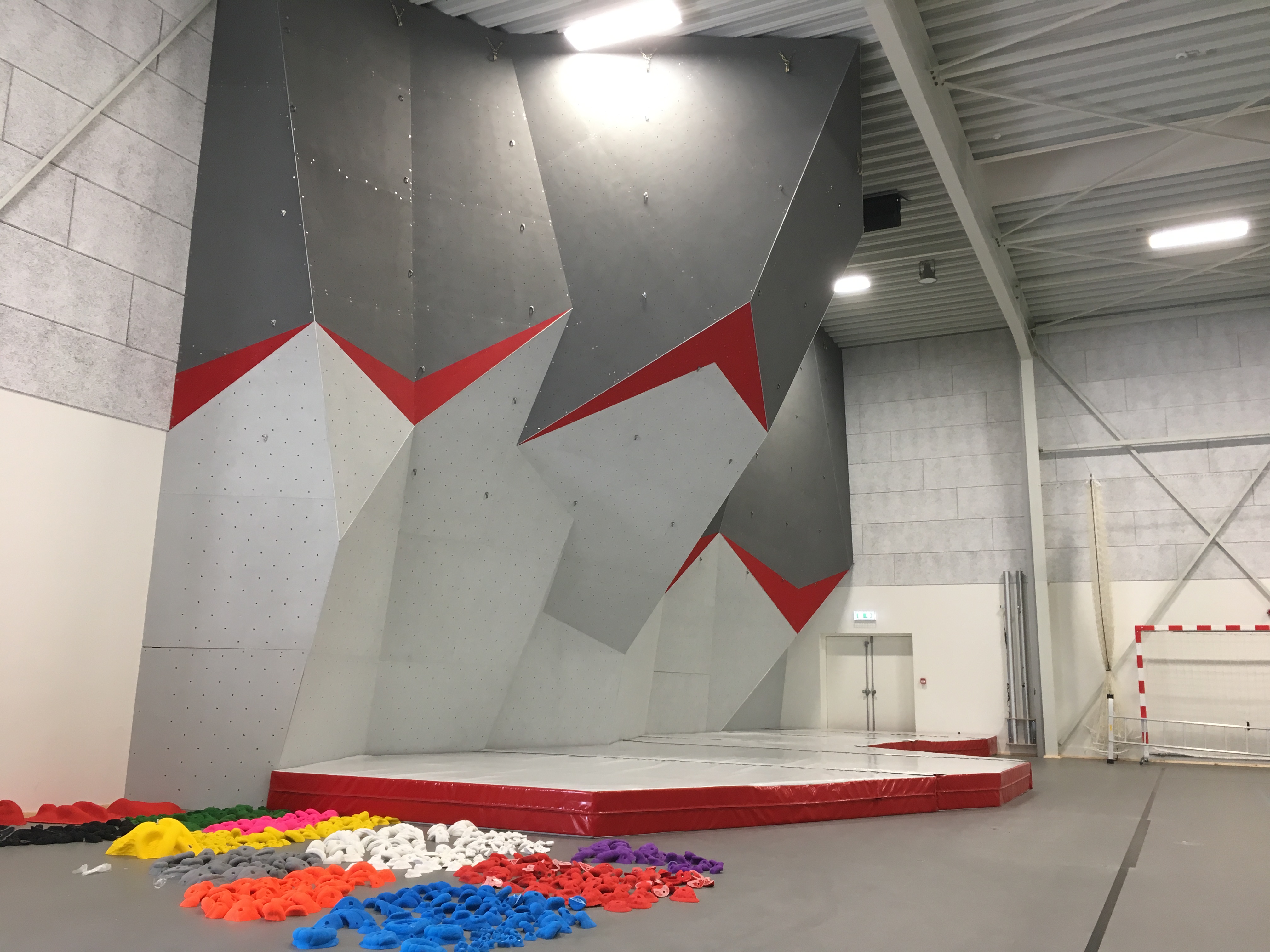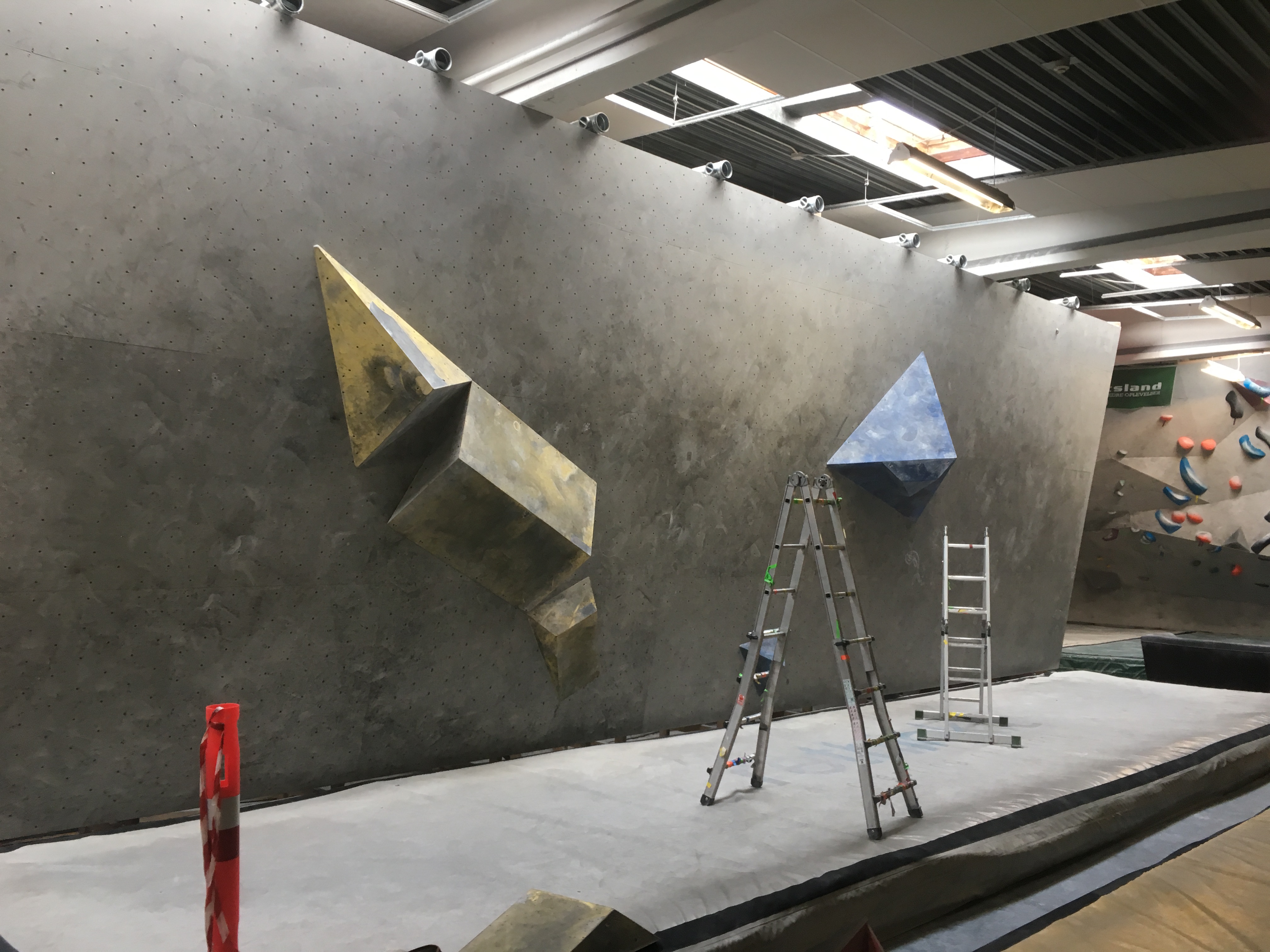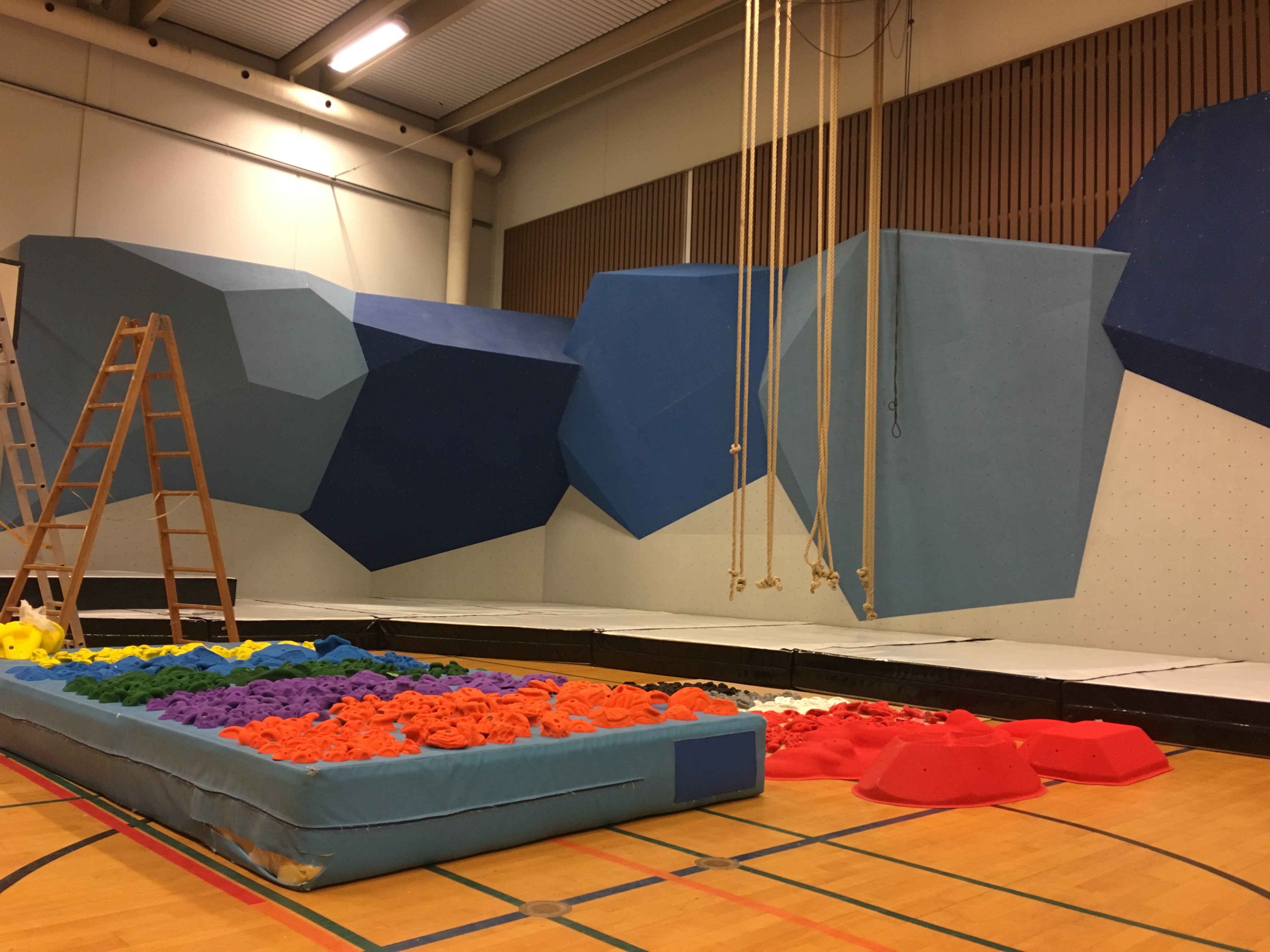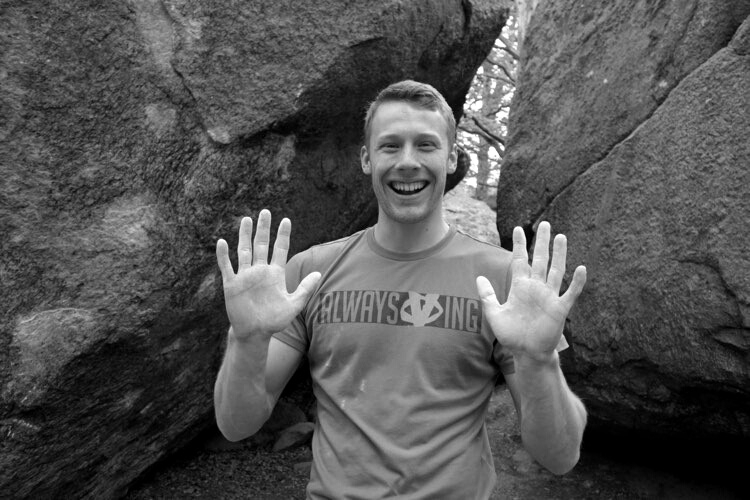How do you get the idea?
In my time as a route setter there is one question, people keep asking me; “from where do you get the ideas?” They ask how do we know where the holds should be placed; have we drawn it in advance and who decides how the climb should be?
In this blog post I will explain this to the best of my knowledge by the use of my own personal experiences as a route setter. I was introduced to route setting at a gym in London three years ago. I was intrigued by it, fell in love with it, and have worked with route setting on and off ever since. I am currently working at Handmade Routesetting setting at the commercial gym Boulders, which is where I have learned most of what I know today (thanks Jim!). I have also been doing projects for Gubbies, setting at border schools, high schools, playgrounds and other public areas.
When setting a route or a problem (henceforth: route) there are generally four main steps that should be mentioned. First is the initial idea, which is the creative process, secondly reshaping the idea and fitting it to the “scheme”, the third step is the process of creating it, this is where we get to put on hearing protection and make loud machine noises that distract the rest of the gym. Lastly the fourth step is testing it, putting our climbing shoes on and getting all the last bits and pieces tied together.
Step 1: Initial idea
As a climber and route setter you have familiarized yourself with different climbing moves, some, which you have an easy time setting (takes a short time to make the moves work), some which are more difficult for you. Some moves you know are a crowd-pleaser, some moves you particular like to set and so forth. The initial idea for the route can derive from many places and often depends on the situation. Often when setting for a competition or just setting a really hard route in the gym, you would have put a lot of thought into the idea before the day you want to set it.
You will be taking notes, saving and remembering cool and wicked moves from climbing competitions, inspiration from a route you have tried in another gym, movements that you have tried while climbing on a system board, inspiration you have gotten from climbing outdoors on real rock and basically everywhere where you are presented with climbing moves.
These above-mentioned inspirations are often just ‘inspiration’, it does not mean that we try to replicate the problems (even tough sometimes we do try if there is something really awesome and we have the same holds - but that is a real challenge!) it is often just a starting point – something that makes you psyched for the route!
When setting for a commercial gym you would often set 10-15 problems in a day (in total as a team). You cannot always have specific ideas for everything and this is where your expertise comes in handy. When you need that sudden creative idea you would either pick up your phone and go through videos of inspirational moves that you have saved or go out to where you store all the climbing holds and get inspired by them. Sometimes it also works to sit in front of the wall with the specific angles and possible volumes and other climbs on it and think of something creative that would fit. Fitting it is a keyword that brings me to the next step. A very essential part of your creative process.
Step 2: Reshaping the idea
Whether you have been inspired by going through the climbing holds or have this brilliant idea from a competition you have been watching or really want to mimic a move or a feeling you felt last time you were in Fontainebleau – you always need to fit your idea, fit it to the teams’ ideas, the climbing holds available, time pressure, wall angle you are setting on, what there was before, what your climbing gym needs right now and a lot more.
Fitting the idea can often mean reshaping it; this is not always a negative aspect but is often a necessary part.
You want to keep the part of the route and idea that is the best part, the feeling you want the climbers to have or the part, which makes you, psyched to set the route. And then fit it. Let us say that you have imaged to set something, which you believe, would work on a specific grade or difficulty – but when organizing who should set what, it comes clear that whatever idea you have should be implemented to something harder or easier than initially thought. This might influence the idea, making it harder to set; maybe the holds are different for the grade (we set grades with the same coloured hold), maybe the move is too hard for the new grade et cetera. Then it is necessary to reshape it and making it fit. Rethinking a section of the route so the best part can be kept, or mimicking the initial idea, but with slight changes.
The gym, school or any place that you set at might have some general guidelines or requirements that the setter and the routes should meet. Preferably this will be thought of while going through the initial creative process, but if not, it should be implemented at this stage.
The place you set at might be extremely strict regarding setting something that is morpho - something that is harder or impossible for specific body types (often a hold that a short person cannot reach or a move or position a big person cannot fit into) – strict regarding how the feel of a climb should feel, requirements regarding how much a specific move should be present (if you need to set something with a heel hook, or a climb where you can practice the climbing move flagging et cetera). Luckily there are often not too many rules and requirement, and this is where the fun really begins, because then it will not affect your creativity.
For PART 2 about route setting click here
Meet the author: Daniel
___________________________Daniel is a Boulderer. An experienced Routesetter. He have built several climbing walls. Worked with climbing in various different ways. Have recently been to Kjugekull, Rocklands and Fontainebleau. Plan on going to either Västervik or Magic Woods soon. Always smiles. An ape-index of positive ten. Loves climbing.






















